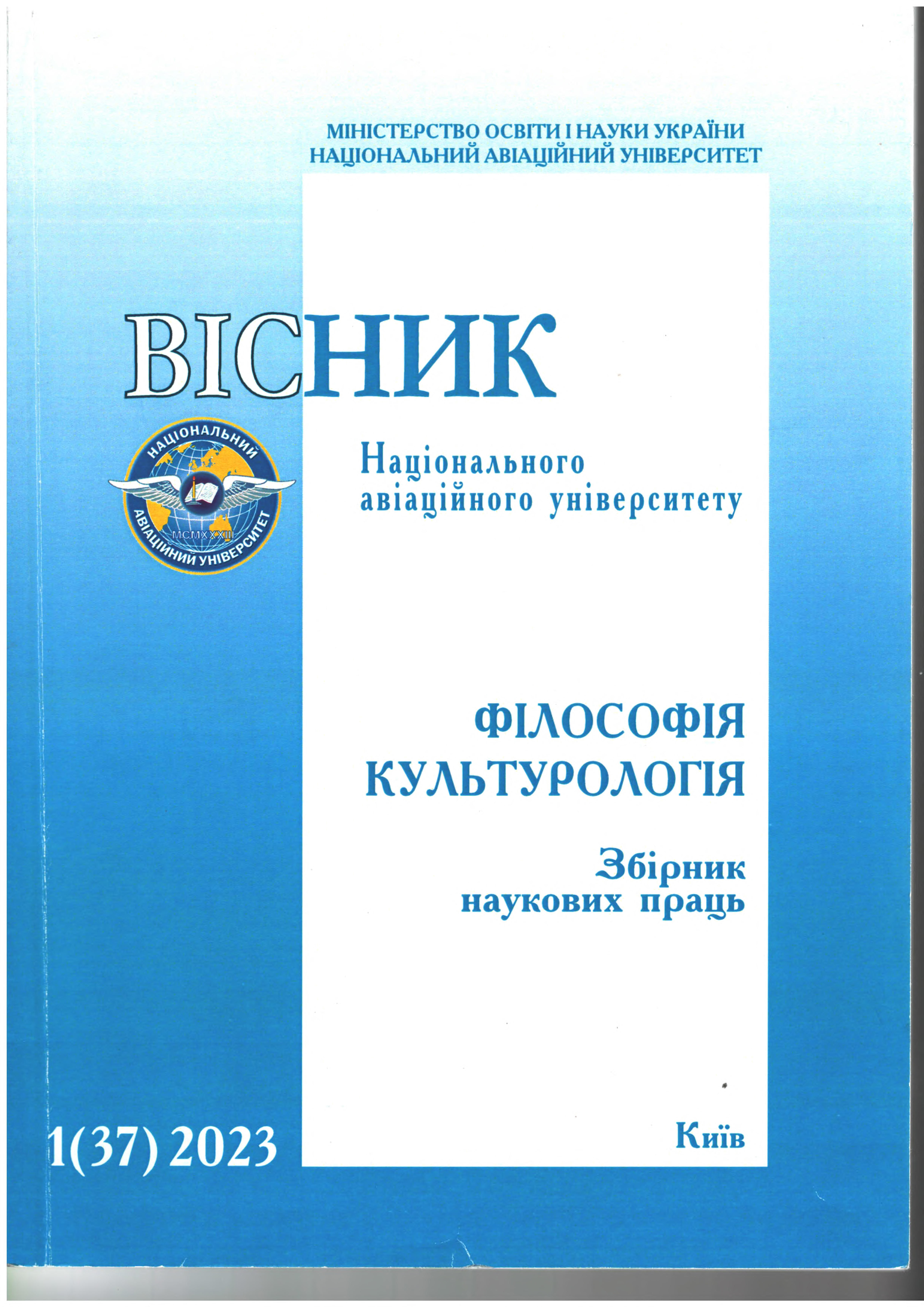PROSPECTS FOR OVERCOMING GLOBAL CHALLENGES OF THE XXI CENTURY IN A POSTMODERN REALITY
DOI:
https://doi.org/10.18372/2412-2157.37.17571Keywords:
глобальні виклики, глобалізація, технократизм, синергетика, діалектичні закони розвитку, системний аналіз, соціальний проєкт, концепція сталого розвитку, суспільство, цілепокладанняAbstract
Introduction. The idea of implementing a synergistic methodology and giving society the "freedom" of self-organization and self-regulation in
order to "manage chaos" showed its inability in the ХХІ century. Upheaval at the end of the ХХ c. they look like skillfully constructed chaos that,
through reforms, replaced state technocracy with a global one. Such "social reformation" coincided in time with a sharp aggravation of global
problems actualized in the last century. The aim is to study the influence of modern approaches of technocratism and synergetic on the
assessment of the social transformations that have taken place, and the analysis of strategies and projects for countering global risks, which
humanity seeks to implement in the XXI century. Research methodology is philosophical principles of objectivity, reflection, development and
interconnection. The dialectical method of knowing reality in its contradictions, integrity and development is applied. The system approach
reflects the self-organization and structuring of systems as a universal quality of society. Research results. The world of the XXI c.
demonstrates the trends that, in fact, do not correspond to predefined and deterministic technocratic approaches. For their explanation, it is
appropriate to use the concept of non-linear development, widespread in scientific discourse. Indeed, with the emergence of theories of
probability, nonlinearity and synergy in modern post-classical science, a nonlinear understanding of development begins. In essence, the classical understanding of development is based on the desire to order the world and tame chaos, while the non-classical one is based on the
artificial creation of entropy and the attempt to control chaos. However, specific examples also confirm the fact that even in conditions of
artificially created chaos, management methods remain old - traditionally technocratic in their worst version. Discussion. In philosophical
thought, the concept of technocracy is one of the options for the vision of the future of humanity. In the XXI c. it has undergone several changes,
approaching the concepts of local civilizations, culture and post-industrial society in different ways, but it has retained its position among the
projects and forecasts of human development. Technocrats and technocracy are usually contrasted with the "humanistic renaissance" of
modern philosophy in modern social and philosophical thought. Conclusions. In the conditions of the "turned inside out" world, it is quite natural
that global problems cannot be overcome by traditional means and proven methods. So, foremost, the global world system needs revision. Only
by taming the artificially created controlled chaos, it will be possible to carry out creative plans to save the world.
References
Bell D. The coming of post-industrial society. The Urban
Lawyer, 2000. 738 p.
Castells M. Communication power. Oxford University Press,
574 р.
Confronting Fragmentation Where It Matters Most: Trade,
Debt, and Climate Action. Kristalina Georgieva. January 16, 2023
Etzioni A. The New Golden Rule. Community and Morality
in a Democratic Society. New York, Basic Books, a Division of
Harper Collins Publishers, 2005. Р. 37.
Fukuyama F. Political order and political decay: From the
industrial revolution to the globalization of democracy. N.Y.:
Farrar, Straus and Giroux. 2014. 658 p.
Modeling on a Grand Scale: World Dynamics. Jay W.
Forrester. Wright-Allen, Cambridge, Mass., 1971. 142 p.
The Blue Economy: 10 Years, 100 Innovations, 100 Million
Jobs Gunter A. Pauli Paradigm Publications, 2010. 308 р.
What the Continued Global Uncertainty Means for You /
Hites Ahir, Nicholas Bloom, Davide Furceri / January 19, 2021
Арістотель. Метафізика. К.: Темпора, 2022. 848 с.
Аутопоезис соціальних систем; за ред. В. П. Беха. Київ:
Національний педагогічний університет імені М. П.
Драгоманова, 2010. 746 с.
Бех В. П., Малик І. В. Технократизм у дискурсі проблем
вищої школи: Монографія. К.: Вид-во НПУ імені М. П.
Драгоманова, 2009. 263 с.
Дротянко Л. Г. Інтенсифікація глобалізаційних процесів
в інформаційну еру. Вісник Національного авіаційного
університету. Серія: Філософія. Культурологія: Збірник
наукових праць. Вип. 1 (27). К.: НАУ, 2018. С. 9-13.
Кіндзерський Ю. В. Всеохоплююча індустріалізація як
ціль сталого розвитку: теоретичні та практичні особливості
політики формування. Сталий розвиток — ХХІ сторіччя.
Дискусії 2021: матеріали VII Міжнародної науково-практичної
конференції. Київ, 2021. С. 63-73.
Клешня Г. М. Соціальний проєкт в епоху постмодерну:
дис. канд.: 09.00.03 / Клешня Ганна Миколаївна. Київ, 2016.
с.
Орденов С. С. Архаїзація глобалізованого соціуму в
інформаційну добу. Вісник Національного авіаційного
університету: Серія: Філософія. Культурологія. Вип. 2 (28). К:
НАУ, 2018. С. 54-64.
Гетало Т. Е., Кузь О. Н. Соціальність як вона є і як вона
здається. Сучасний науковий вісник. Серія: Філологічні науки,
історія, право, філософія. 2015. №2 (249). С. 105–116.4
Шоріна Т. Г. Технократизм як концепт соціальної теорії
та тип мислення. Вісник Національного Авіаційного Універси-
тету. Серія: Філософія. Культурологія. 2 (26). 2017. С. 76-
Шоріна Т. Г. Зворотний бік глобалізації та неолібера-
лізму: феномен прекаріату. Вісник Національного авіаційного
університету: Серія: Філософія. Культурологія. Вип. 1 (21). К:
НАУ, 2015. С. 84-88.

